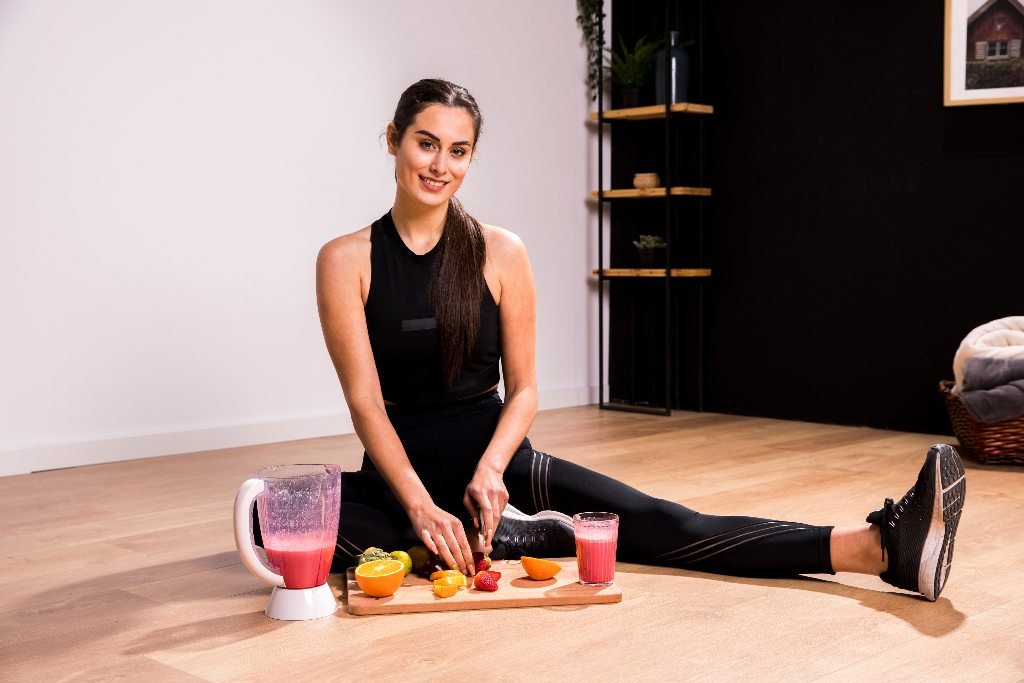Yoga and Nutrition: Foods That Support Your Practice

Yoga is more than poses and stretches. What you eat before and after practice plays a significant role in how you feel, move, and recover. A balanced diet helps improve energy, focus, and flexibility while supporting long-term health.
This guide explains how nutrition and yoga work together, with tips, tables, and examples you can use daily.
Why Nutrition Matters for Yoga
Good food choices can:
- Keep your energy steady during practice.
- Improve focus and breathing.
- Support muscle recovery and joint health.
- Prevent bloating, fatigue, or discomfort.
According to the World Health Organization (WHO), healthy eating is one of the key factors for maintaining strength and preventing chronic diseases (WHO nutrition advice).
What to Eat Before Yoga
Overeating before yoga can make you feel heavy, while eating too little may leave you weak. The right balance helps you feel light but energized.
Best Pre-Yoga Foods
- A small bowl of oats with fruit.
- A banana with a handful of nuts.
- Whole-grain toast with avocado.
- Smoothies made with Yogurt, berries, and seeds.
Pre-Yoga Food Ideas
| Food Choice | Why It Works | Example Snack |
|---|---|---|
| Fruits (banana, apple) | Quick energy, easy to digest | Banana + almond butter |
| Oats / Porridge | Slow-release energy, keeps you full longer | Oats with berries |
| Nuts & Seeds | Protein and healthy fats | Handful of almonds |
| Smoothies | Hydration + vitamins | Yogurt + berry smoothie |
Tip: Eat at least 45–60 minutes before practice to avoid discomfort.
What to Eat After Yoga
After yoga, your body needs fuel to repair muscles, rehydrate, and restore energy.
Best Post-Yoga Foods
- Brown rice with vegetables.
- Grilled fish or chicken with salad.
- Lentil soup with whole-grain bread.
- A smoothie with protein powder.
Post-Yoga Food Ideas
| Food Choice | Benefits | Example Meal |
|---|---|---|
| Whole grains (brown rice) | Restores energy | Rice + veggies |
| Lean protein | Repairs muscles | Chicken + salad |
| Legumes | Plant-based protein + fiber | Lentil soup |
| Smoothies with protein | Quick and refreshing recovery | Spinach + banana + protein |
The NHS highlights the importance of including protein after physical activity to support muscle recovery (NHS protein advice).
Hydration and Yoga
Water is as essential as food. Dehydration can impair focus and lead to muscle cramps.
Best Hydration Tips
- Drink a glass of water 30 minutes before practice.
- Sip water after class to replace lost fluids.
- Avoid sugary drinks before yoga (they can cause energy crashes).
- Herbal teas (like ginger or peppermint) can calm digestion.
The CDC recommends drinking enough fluids daily to maintain body balance and prevent Dehydration (CDC hydration guide).
Foods to Avoid Before Yoga
Not all foods support your practice. Some can cause bloating, heaviness, or sluggishness.
Foods That May Interfere
- Fried foods – heavy and slow to digest.
- Spicy meals may upset the stomach.
- Excessive caffeine consumption can lead to jitters or Dehydration.
- Sugary snacks – quick energy crash during class.
Foods to Limit Before Yoga
| Food Type | Why Avoid | Example |
|---|---|---|
| Fried foods | Heavy digestion, sluggish feeling | Fries, fried chicken |
| Spicy foods | Can cause acidity or cramps | Spicy curry |
| Sugary snacks | Quick crash, not lasting energy | Candy, soda |
| Excess caffeine | Dehydration, anxiety | Strong coffee, energy drinks |
Expert Insights on Yoga and Nutrition
- Dr. Uma Naidoo, a nutritional psychiatrist, highlights that food impacts not only physical energy but also mood and focus, which are key for a yoga practice.
- Yoga teachers often recommend eating light meals and practicing mindful eating to stay connected to the body.
Practical Examples
- If you practice yoga in the morning, consider having fruit or a smoothie.
- If you practice in the evening, a light protein-rich dinner works best.
- Keep snacks simple: nuts, seeds, or Yogurt.
Long-Term Nutrition for Yogis
Yoga is not just about one class—it’s a lifestyle. Long-term nutrition should focus on balance.
Key Principles
- Balance: Include carbohydrates, proteins, and healthy fats in your daily diet.
- Whole foods: Fresh vegetables, fruits, whole grains, and legumes.
- Moderation: Avoid overeating before practice.
- Mindfulness: Eat slowly and listen to your body.
Weekly Meal Plan for Yogis
| Day | Breakfast | Lunch | Dinner | Snack |
|---|---|---|---|---|
| Monday | Oats + fruit | Quinoa + veggies | Fish + salad | Nuts + apple |
| Tuesday | Smoothie + seeds | Lentil soup + bread | Brown rice + beans | Yogurt + berries |
| Wednesday | Whole-grain toast + egg | Grilled chicken + salad | Veggie stir-fry + tofu | Banana + peanut butter |
| Thursday | Fruit bowl | Chickpea salad | Salmon + sweet potato | Seeds + herbal tea |
| Friday | Oats + chia seeds | Rice + curry lentils | Grilled veggies + hummus | Nuts + dried fruit |
For long-term healthy eating, the WHO recommends a balanced diet with a higher intake of plant-based foods and a lower intake of processed items (WHO diet guide).
Final Thoughts
Yoga and nutrition are closely intertwined. Eating light, balanced meals before practice and nutrient-rich foods after practice can improve flexibility, focus, and recovery. By staying hydrated, avoiding heavy meals, and making mindful choices, you can support your yoga journey with the right foods every day.
